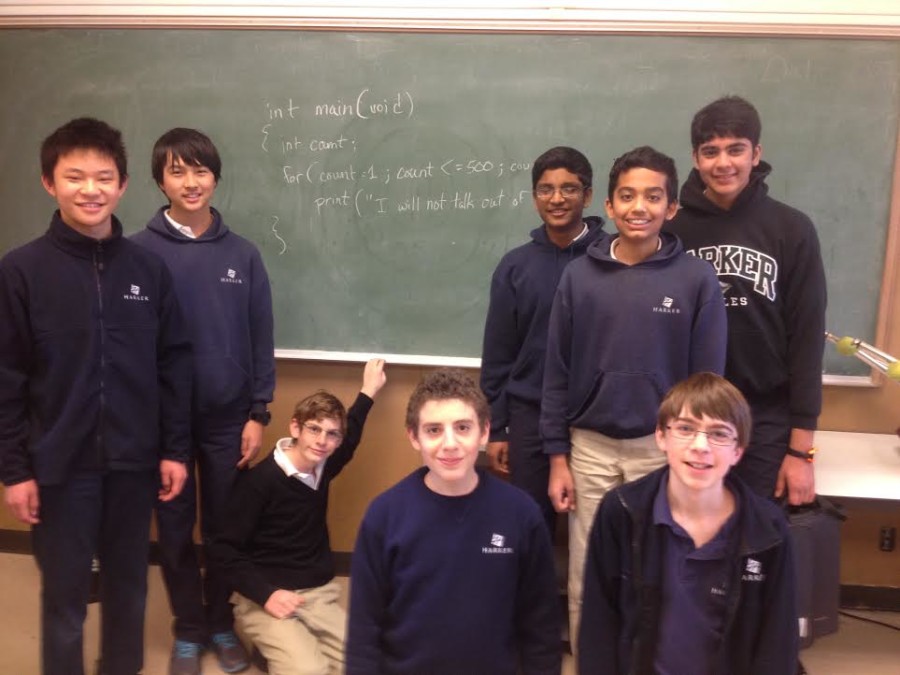Starting early in the game
February 5, 2015

The Middle school programming club run by Mr. Michael Schmidt has no girls on the team.
Some students may know her as the eighth-grade girl arriving at the Upper School each morning for her AP Calculus BC class and ninth-grade English class.
Rose Guan’s (‘19) primary interest lies in biology, but she has also enjoyed the various math and CS electives available at the middle school. Last year, she was a member of Programming Club.
“For required classes, the gender disparity doesn’t exist,” Rose said. “But in programming club last year, when we met, I was the only girl and there were around ten other boys in the club.”
Programming Club, an extra-curricular, is run by Michael Schmidt, the head of the Middle School’s CS department. This year, the club is all male.
“There were two girls that came for a while, but they were drowned out by the boys,” Schmidt said. “That is one detriment to girls when trying to work in a group with boys. They’re not as assertive. I don’t think that is a negative, but I think it translates to the same problems that exist in the working world of technology.”
To counter the problem, Schmidt considers starting a girls programming club next year.
“The only difference I have seen [between the genders] is that there are a handful of students that enter my class as seventh graders who already have had experience programming,” he said. “That ratio of boys to girls is imbalanced, with boys being the majority. I don’t know if this is based on true interest and personal motivation, or if their parents are pushing them towards the topic of programming.”
Parental views might hinder young girls from STEM classes based on preconceived biases about whether girls can participate in the field. A 2011 University of Chicago study titled “The Role of Parents and Teachers in the Development of Gender-Related Math Attitudes” found “that parents’ and teachers’ expectancies […] are often gender-biased and can influence children’s math attitudes and performance.”
Having grown up with a now 20 year-old brother, a 15 year-old brother, and a 10 year-old sister, Chandini Thakur (‘16) sees a different emphasis on the STEM interests of males and females in her family. She plans on becoming a medical doctor, and her older brother studies computer engineering in college.
“My dad has already started working on getting my younger brother connected to people in engineering and not as much on my future career in the medical field. It’s interesting to see that because my sister’s already expressing an interest in engineering, and he’s not paying attention to that as much as he should be,” she said. “It’s just kind of disappointing sometimes that gender can get in the way of interests that children may have in science.”
At the middle school level, Schmidt and the administration are aware of the gender imbalance, with CS electives consisting of an estimated three boys to one girl. A course introduced last year to the curriculum, “Programming Fundamentals” is a required 7th grade course intended to even out the playing field.
“If [girls] see that it’s well within their reach to try more programming related tasks, those numbers may equalize,” Schmidt said. “We’re hoping that getting this education to students earlier will give girls the confidence and desire to challenge themselves in the high school when it comes to programming.”